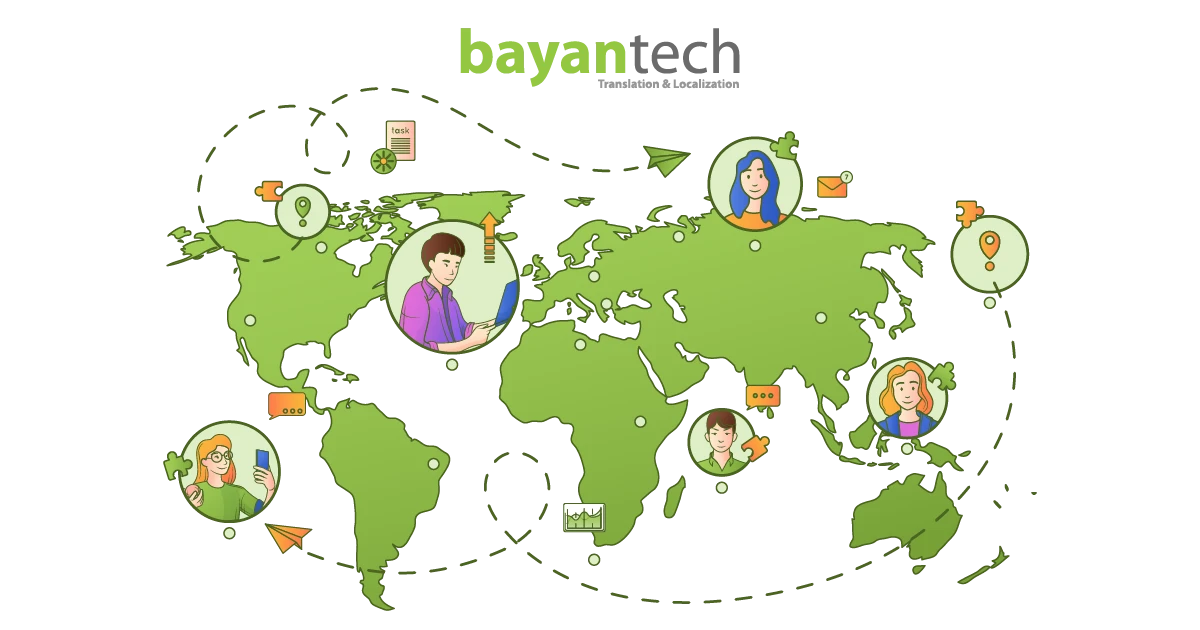Maybe your organization is negotiating with foreign partners. Maybe your organization is working on expanding beyond its home market – or engaging new demographics at home. The bottom line is that you’ll need some sort of a translation solution to begin. But, what exactly is right for your business?
Especially if you’ve never worked with language services before, it may be hard to decide what translation solution will fit your needs. And not knowing what you’re really looking for will put you on unequal footing, making negotiations with potential LSPs unproductive and unnecessarily complicated.
As an experienced translation services provider, we want to empower you with information. That’s why, in this post, we’ll explain 4 of the most common types of business translation services. We’ll also share what you need to look for in a translation company to make sure they can meet your needs.
Let ‘s get started.
Legal Translation
Anytime you do business internationally, you’ll find yourself in need of legal translation solutions. Legal translation is a type of document translation service that works with legal or legally binding material. For instance, contracts and licenses.
Legal translation services aren’t just about rendering a document into your target language. The best legal translation solution providers will also adapt the material so it matches the regulatory and cultural standards of the target country.
Considering that the core goals of legal translation are regulatory compliance and clarity in both languages, this process may involve:
- Consulting legal experts.
- Carrying out multilingual desktop publishing.
- Implementing glossaries and automating the translation of formulaic language.
Translation challenges will differ from document to document, but the most common legal translation problems are related to the precision and the need to connect two different legal systems.
Legal documents often include two aspects:
- Formulaic language that structures the document.
- Data; information about the particular context of the document.
Formulaic language can be easy to translate, especially for legal language experts. But data is full of subtleties that can completely change the meaning of an agreement. And providing a counterpart with a mistranslated contract can absolutely destroy a business relationship – and give them solid ground to litigate against you.
Translating “could” as “should” or “will” as “may” is as serious as mistranslating the name of a law or a legal concept. That’s why, when it comes to legal documents, professional translation is the way to go.

Technical Translation
Closely linked to legal language translation solutions, but fundamentally different, technical translation is another top need for a global business.
Technical translation works with the documents that production processes rely on, from user manuals and health & safety handbooks to financial research.
This type of translation solution relies on a combination of correct terminology management, proper formatting, and legibility. The action-oriented and almost mechanical language of technical documents needs to be transmitted into the translation. Technical documents are problem-solving tools, so the language solution provider must go out of their way to make the text actionable and precise.
Before moving on to the next translation solution, let’s take a look at four contexts in which technical translation services may be necessary:
- International manufacturing processes.
- Global supply chain management endeavors.
- International employee training.
- International software development processes.
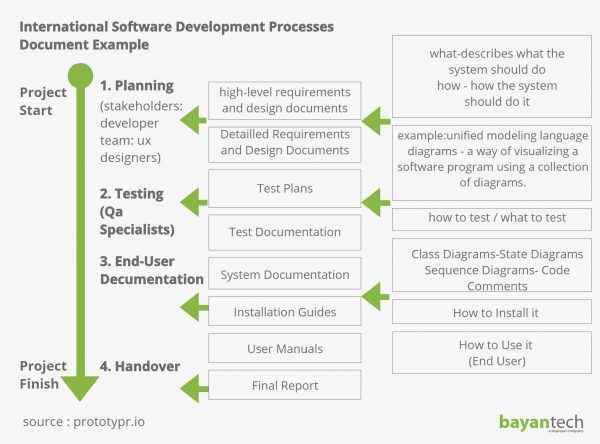
Localization: When a Translation Solution Is Not Enough
Every translation solution involves some degree of cultural adaptation. Professional translation is never a culturally neutral rendering of a message, word-by-word. Culture has to be taken into account.
But, in some cases, a business’ true goal is not reproducing a text, but reproducing its impact. You don’t want the new audience to read the same words that your original audience read, you want them to feel the same. This is the case for marketing material. And in some cases, also for eLearning products.
In these cases, a translation solution may not be enough. Instead, you should seek localization services. Localization consists of adapting a piece of content so it meets the cultural, regulatory, and technical expectations of its new target audience. It’s particularly important when translating across very different cultures. For instance, a video game made by a UK studio could do well in France with just intelligent translation. But it will need deeper changes to make it in the Japanese or UAE markets.
Some assets you may need to localize are:
- Your company website
- Brochures and other outreach material
- Your social media content
- Your product's packaging
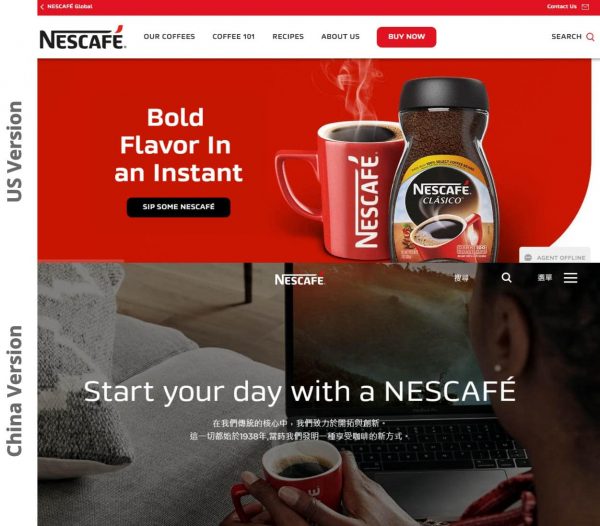
Unlike a translation services team, your localization providers will adapt:
- Your content's visual material, replacing and remaking images and graphics.
- Your digital asset's UI, so it meets local usability standards.
- Your concept's tone and wording.
- Cultural references, jokes, and other very locale-specific elements.
Learn what’s the best translation solution for you
Download our free questionnaire and action guide today.
Creative Translation and Transcreation for Online and Offline Content
When the need for localization focuses on text, and that text requires significant changes, Transcreation will enter the picture. Transcreation is a type of translation solution that exceeds the limits of translation and completely rethinks the material’s concept.
By re-working the text from the ground up, a transcreation or creative translation solution will make the written sales asset specifically effective for its new target locale.
Transcreation is ideal for:
- Brochures
- High-performing blog posts
- Video scripts
- Social media campaigns with extremely culture-specific concepts
Industry-Specific Services
The aforementioned services are just four out of dozens that translation companies provide to businesses like yours.
Some services are just industry-specific variations of the aforementioned four. For instance, eLearning and video game localization. While these services fall under the umbrella of localization solutions, they’re specifically designed to meet the goals and needs of particular sectors.
It’s also worth mentioning that language services far extend beyond translation and localization. The world of language services is vast and rich, and this article just provides the very basics of what you need to know.
If you need language assistance for a meeting with a foreign partner, the meeting notes can be translated, but you’ll also need an interpreter. And, if you need to have a video translated, you probably need dubbing or subtitling, not strictly translation.
Perhaps you’re wondering if you really need a translation solution, to begin with. Aren’t there automated, more cost-effective alternatives? In the next section, we’ll provide a detailed answer to that common question.
Is There an Alternative to Professional Translation Services?
A professional translation solution, delivered by an expert translation company will guarantee a seamless cross-cultural adaptation for your brand or product. But, as a client, you may have some concerns that may lead you to look for alternatives.
These alternatives may be:
- Contacting individual freelancers
- Relying only on automated translation solutions
- Asking a bilingual individual within your organization to translate the material for you.
Let’s examine their specific downsides.
Working with an Individual Freelancer
An individual freelancer may be unable to provide you with the type of comprehensive, cross-disciplinary service that language services providers offer. For example, an individual freelance translator could deliver a perfectly translated version of your document but may be unable to integrate the raw text into your desired format.
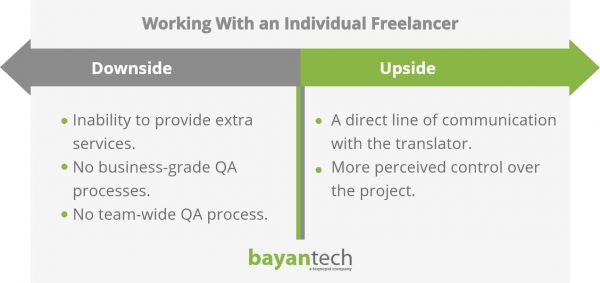
The Perks of Blending Automation & Human Labor
Although in the past, machine translation was insufficient quality-wise (Google Translator is a clear example),in recent years, it has experienced 4m 49s enormous growth, attaining a central role in translation processes, as well as improving in two key fronts: Efficiency and speed.
This is coupled with the great advances in technology and the development of translation management systems (TMS) that accompany the daily work of translation experts.
This perfect blend of automation and human labor achieves the finest results in the shortest timeframes. Processing large amounts of text through an MT engine makes it possible for translators to deal with more creative and less repetitive tasks, allowing them to focus on the post-editing machine translation (PEMT) or simply, post-editing process.
This duo is increasingly present in countless language pairs and is likely to soon become part of all professional translation processes.
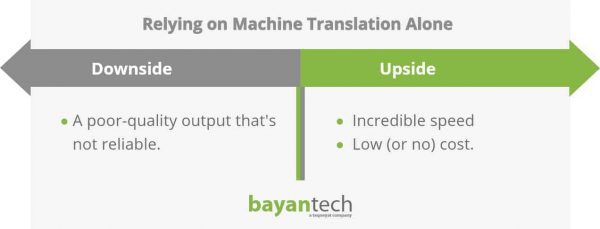
Relying on a Non-Translator
Inviting a bilingual team member without translation training to do the job is not the best idea. Translators aren’t just proficient in two or more languages. They’re also aware of how to render a message from one into the other without obscuring it.
In some disciplines, such as engineering, it’s not uncommon to ask bilingual professionals with no translation expertise to translate material. This often results in technically impeccable translations, with no semantic problems, but that fail to meet local readability conventions.
By working with a professional translator, you get the full combo: Language expertise, subject-matter knowledge, outstanding problem-solving, and a commitment to accuracy.
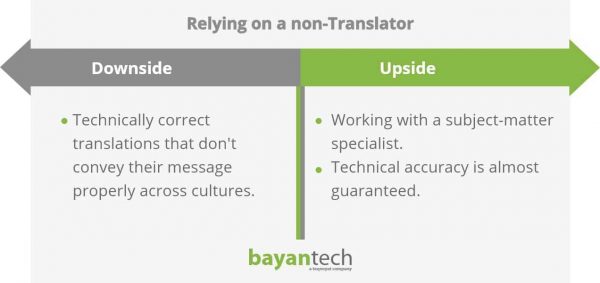
Common Client Fears when Looking for a Translation Solution
Why would someone refuse to get the type of translation solution they need? Clients’ hesitations often boil down to three fears:
These three hesitations have some grounding and are worth addressing. In this section, we’ll go over these three fears and share how we, at bayantech, work to solve it.
Control over the Final Product
A language services provider that doesn’t properly communicate with clients may leave their insight and their expertise out of the equation. Besides, scarce communication between the service provider and the client may result in poor quality outputs that don’t meet their needs.
Lack of control over the final translation is a consequence of not engaging key team members in the decision-making process.
Solution: Reliable language services providers should offer wide availability and connect project managers to clients directly. Project managers should be easy to reach and always ready to answer client questions. This is the least you can expect from your translation company. And, as a client, you should always ask about customer service, when looking for a language partner.
The LSPs that are best equipped to fulfill these expectations usually implement best-of-class translation management systems. A proper translation management system gives PMs the ability to assess a project’s progress, coordinate the translators’ workflows, and detect bottlenecks.
Costs & Pricing
The problem of pricing is complex and multi-layered. You as a client may be hesitant, around the issue of pricing due to finding the pricing structure of a translation agency unpredictable, unjustified, or both. If you find the pricing unpredictable, the root of that problem is likely poor communication.
It’s worth mentioning that it’s wise to question suspiciously low rates. World-class LSPs deliver quality translations through a combination of human expertise, data-driven and strategic processes, and best-of-class software. None of these elements can be covered at an extremely low rate. Regardless, the use of translation tools reduces the amount of repetitive work a translator will have to perform. This keeps the cost of high-quality translation comparatively low.
Solution: Your translation company should be able to provide you with an accurate estimate of how much the project is going to cost. In large projects such as the localization of a website, feel free to ask your translation company about potential unforeseen instances that would elevate the final rate. Set a clear budget as early as possible, and decide on a decision-making process that leaves plenty of room to discuss additional costs and services.
If you find your LSP’s pricing unjustified, the root of the issue is how you perceive it.
A reliable language service provider will make your expansion efforts possible, and save you the high costs of mistranslation.
If you believe your language services provider will not be ROI-positive, ask yourself why. What would be the traits of your ideal LSP?
You may be looking for:
Create a comprehensive list of characteristics you’re looking for in your LSP, and do your research with those traits in mind.
Sign up to our newsletter to receive the latest blogs and news.
Security & Confidentiality
Security and confidentiality have to do with the infrastructure, translation management systems, and processes that your translation solution provider has in place. Security and confidentiality are some of the fundamental factors why you should gravitate towards companies rather than freelancers or individuals. Individuals will necessarily be less resourceful when it comes to protecting your privacy.
Solution: A world-class LSP should have specific measures in place to protect your privacy. For instance, using private networks and GDPR-compliant services to collaborate on your project. An LSP will also be better at accommodating any sort of legal agreement, such as an NDA that protects your data and your project’s key information.
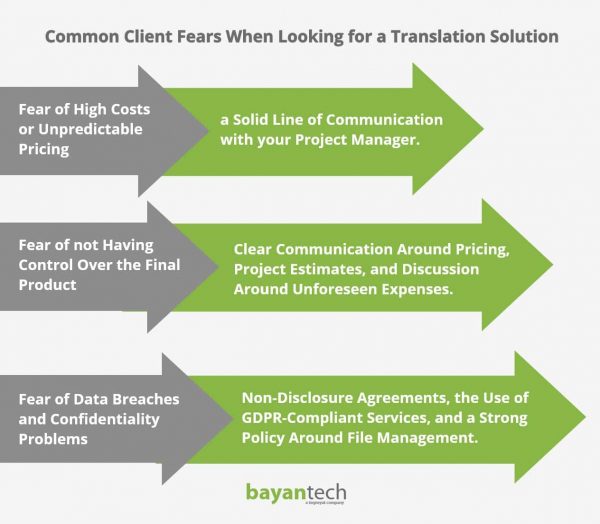
Looking for High-Quality Translation Solutions? Partner Up with a Global Leader
Ay bayantech, we’re a leading MENA-based translation company with almost two decades of experience. Trusted by industry giants in healthcare, technology, manufacturing and more, we provide ROI-generating, international translation solutions across the board.
Our experienced team, cutting-edge tools, detail-oriented project management, and ISO-certified quality assurance processes set us apart.







